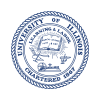MS sues 200 for spamming
Microsoft has filed eight lawsuits in the US against nearly 200 accused spammers, saying that the defendants had used false information to conceal themselves, and had deceived consumers. Each of the lawsuits "names" at least 20 unidentified defendants, as well as one John Hites, identified by anti-spam campaigners at Spamhaus as one of the world's ten most prolific spammers.
Microsoft is seeking injunctions against each defendant, using the CAN-Spam act, and could be awarded up to $1m per spammer in civil fines. THe company said it hopes to unmask the anonymous spammers through the legal discovery process.
Microsoft filed its first suits against unsolicited mailers in June last year (2003), and is now involved in more than 80 such cases around the world. So far, its legal actions have resulted in four settlements, two defendants being declared bankrupt and five judgments for Microsoft.
"We're raising the stakes, we're making it more expensive for spammers," Tim Cranton, a senior lawyer at Microsoft said. "A lot of the established spammers are realizing that it's much harder to operate."
Although any efforts made in the fight against spammers are to be applauded, anyone with an e-mail account will testify that the effect on the amount of spam arriving in inboxes has been zero. Frank Gorman, former legal counsel for the Federal Trade Commission's Bureau of Consumer Protection, told The Washington Times: "It's not going to make an impact by itself, but you have to approach it from every angle."
In January this year, Bill Gates, Microsoft chairman, outlined a three-step programme to eliminate spam within two years: he proposed a system whereby senders would have to pay a digital stamp fee if recipients considered the mail to be spam.








































































